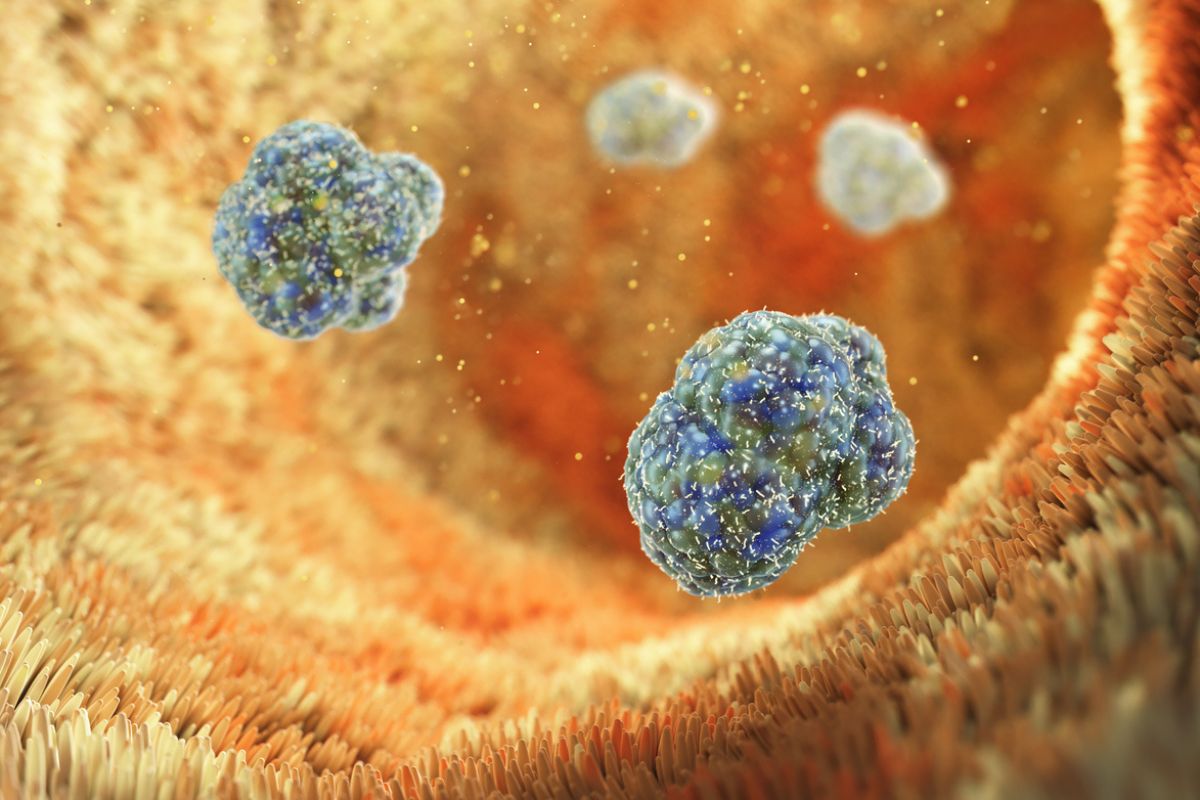We should have been trusting our guts all along. The data coming in from research around the world makes it increasingly – and repeatedly – clear that the link between our gut health and our mental health is stronger than we thought. Research published late last year in Schizophrenia identified a potential bidirectional link between the gut microbiome and schizophrenia – reinforcing a mounting body of evidence on the topic.
Using advanced genetic analysis through two-sample bidirectional Mendelian randomization (MR), researchers uncovered new details about the gut-brain relationship and what it might mean for developing future schizophrenia treatment therapies.
The teams used data pulled from genome-wide association studies (GWAS) by the MiBioGen consortium and the Psychiatric Genomics Consortium to build the foundation of this study.
The Gut-Brain Connection: A New Frontier in Schizophrenia Research
Despite decades of research and drug development, schizophrenia persists as a significant treatment challenge. Antipsychotic drugs, while mostly effective in tamping down psychotic symptoms – typically by targeting dopamine activity – often lose efficacy over time.
This progression of diminishing returns has long motivated researchers to look at alternative pathways. It’s that search for another way that’s led us to the gut-brain axis — an intricate network that involves the immune system, vagus nerve, and microbial metabolites.
Emerging evidence has centered on the altered gut microbiota composition in schizophrenia patients and how it differs from healthy controls – including those who aren’t benefiting from antipsychotics. These study results have sparked renewed interest in gut-targeted therapies – such as probiotics, prebiotics, and fecal microbiota transplantation – all of which could improve schizophrenia outcomes.
The researchers employed MR to examine the causal relationships between the gut microbiome and schizophrenia. By using genetic variants as instrumental variables, MR minimizes confounding factors and reverse causation, which have hampered traditional observational studies.
The team pored over data from more than 18,000 participants in the MiBioGen consortium’s gut microbiome GWAS and more than 130,000 individuals (77,285 with schizophrenia and 53,386 controls) in the Psychiatric Genomics Consortium dataset.
To preserve the integrity of the analysis, the researchers settled on instrumental variables under strict criteria. They employed multiple MR methods, including inverse variance weighted (IVW), MR-Egger, and weighted median approaches. They also leveraged sensitivity analyses, such as MR-PRESSO, to ferret out potential biases and corroborate the results.
A Two-Way Street
The study results revealed complicated interactions between specific gut microbes and schizophrenia risk. Researchers identified nine gut microbial taxa – including phylum Firmicutes, class Clostridia, and family Prevotellaceae – as schizophrenia risk factors.
On the flip side, they tagged six taxa – such as family Veillonellaceae and genus Desulfovibrio – that acted as safeguards.
Reverse MR analysis hints that it’s not a one-way street. Apparently, schizophrenia might also play a role in the composition of gut microbiota. For example, the researchers uncovered a link between the disorder and elevated levels of taxa such as genus Akkermansia and genus Bacteroides and a reduction in taxa such as family Defluviitaleaceae.
Insights into Causality
The research exposed multiple factors at play, such as:
- Microbial Risk Factors: Phylum Firmicutes emerged as a significant risk factor, potentially triggering immune pathways that hamper neuroplasticity. Similarly, class Clostridia and order Clostridiales showed links to schizophrenia. The researchers figured it could be through their short-chain fatty acids, which influence microglial activation and membrane function. Family Prevotellaceae, enriched in individuals with aggressive tendencies, demands further investigation into microbial influences on behavioral symptoms.
- Protective Microbes: Family Veillonellaceae and genus Desulfovibrio exhibited defensive properties. Earlier research established that lower levels of Veillonellaceae are connected to violent behaviors in schizophrenia patients, while Desulfovibrio’s role in preserving gut health aligns with its protective association. These findings support the therapeutic potential of enhancing beneficial gut microbes.
The Way Forward
Targeting the gut-brain axis offers an intriguing way forward in schizophrenia treatment. We already know that antipsychotic medications alter gut microbiota composition, suggesting that gut-targeted interventions could enhance therapeutic outcomes. Probiotics, prebiotics, and fecal microbiota transplantation have shown potential in reducing symptom severity.
For example, probiotics have been linked to improved psychiatric outcomes, and repetitive transcranial magnetic stimulation may exert therapeutic effects through gut-brain interactions.
While this study marks a notable milestone, it’s not without its constraints. The vast majority of the study participants boast European ancestries, which could hinder the extrapolation of data to include other population groups.
The team also failed to consider environmental factors – such as diet and medication – which could shape gut microbiota composition and schizophrenia progression.
The researchers argue that future studies should focus on confirming these results across populations while digging deeper into the mechanisms that drive gut-brain interactions. Incorporating environmental and lifestyle factors also could offer better insight into the gut microbiome’s role in schizophrenia. Future clinical trials that focus on gut-targeted therapies could set the stage for future treatment development.
This paper serves up compelling evidence in support of a bidirectional causal relationship between the gut microbiome and schizophrenia. By singling out specific microbial taxa linked to schizophrenia risk, it paves the way for a better understanding of the disorder’s driving mechanisms and developing novel treatment strategies. Tackling the gut microbiome offers a beacon of hope for transforming schizophrenia care.
Further Reading
Gut Microbiome Breakthroughs Revolutionize Schizophrenia Treatment



